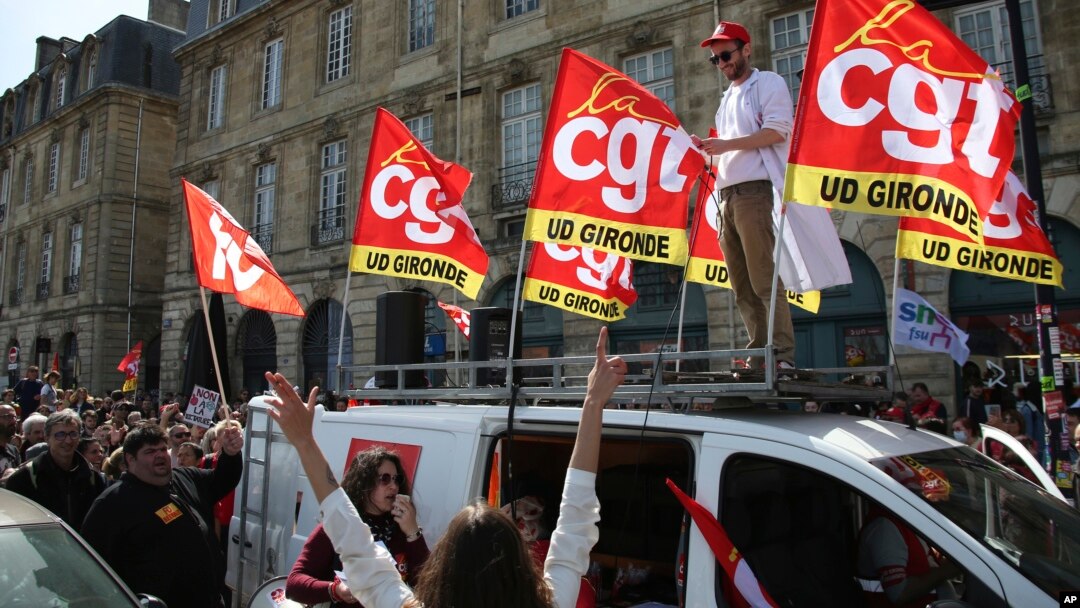President Emmanuel Macron's government on Tuesday rejected a new demand by unions to rethink a deeply unpopular pension bill, infuriating labor leaders who said the government must find a way out of the crisis.
Meanwhile, as protesters across France staged generally peaceful marches on a tenth nationwide day of strikes and protests, clashes broke out in some areas.
In the western city of Nantes, the boarded-up front of a BNP Paribas bank branch was set on fire. Also in western France, protesters blocked the Rennes ring road and set an abandoned car on fire. In the Normandy city of Rouen, authorities confirmed clashes had occurred.
"We have proposed a way out ... and it's intolerable that we are being stonewalled again," the head of the CFDT union, Laurent Berger, told reporters at the start of a rally in Paris.
He and other union leaders had again urged the government to suspend the bill, this time suggesting the use of outside mediators, as the government and unions remain far apart.
But hours later, government spokesman Oliver Veran rejected the idea, saying the cabinet was willing to discuss other policy changes, but not review the pension bill.
Millions of people have been demonstrating and joining strike action since mid-January to show their opposition to Macron's plans to make most of them work an extra two years to 64.
But public frustration has evolved into broader anti-Macron sentiment.
In particular, the protests have intensified since the government used special powers to push the bill through parliament without a vote.
In the last big day of protests on Thursday, "Black Bloc" anarchists smashed shop windows, demolished bus stops and ransacked a McDonald's restaurant in Paris, with similar violence in other cities.
'Crazy'
That was some of the worst street violence in years in France, bringing scenes reminiscent of unrest by supporters of the yellow-vest movement during Macron's first term.
"It would be crazy not to take the time to try and calm things down," Berger said.
Interior Minister Gerald Darmanin said on Monday that authorities were anticipating a "very serious risk to public order" at demonstrations on Tuesday.
A total of 13,000 police were expected to be deployed during the protests throughout the day.
Highways in several French cities were blocked on Tuesday morning, and strikes in the transport, aviation and energy sectors continued to disrupt travel.
About 17% of all fuel stations in France were missing at least one product as of Monday night, France's petroleum association UFIP said, citing energy ministry data.
Student union UNEF said the entrances to around 20 universities including Sciences Po and parts of the Sorbonne in Paris as well as institutions in Lyon, Nice and Toulouse, were also blocked.
Macron, who promised to deliver pension reform in both of his presidential campaigns, says change is needed to keep the country's finances in balance. Unions and opposition parties say there are other ways to do that.
There were fewer protesters in Marseille and other cities than at previous rallies.
Jean-Paul Mattei, a centrist MP whose MoDem party is an ally of Macron, urged him to heed union demands for mediation.
Charles de Courson, from the opposition Liot party, said French authorities should learn from the situation in Israel, where the government just hit pause on a controversial justice overhaul.


